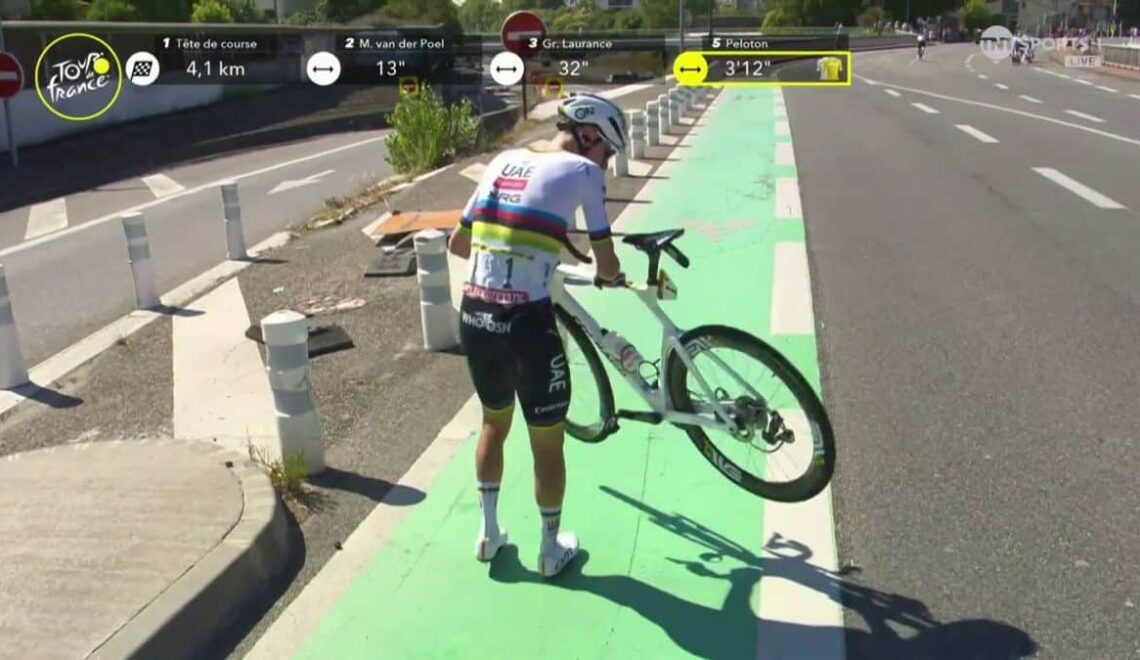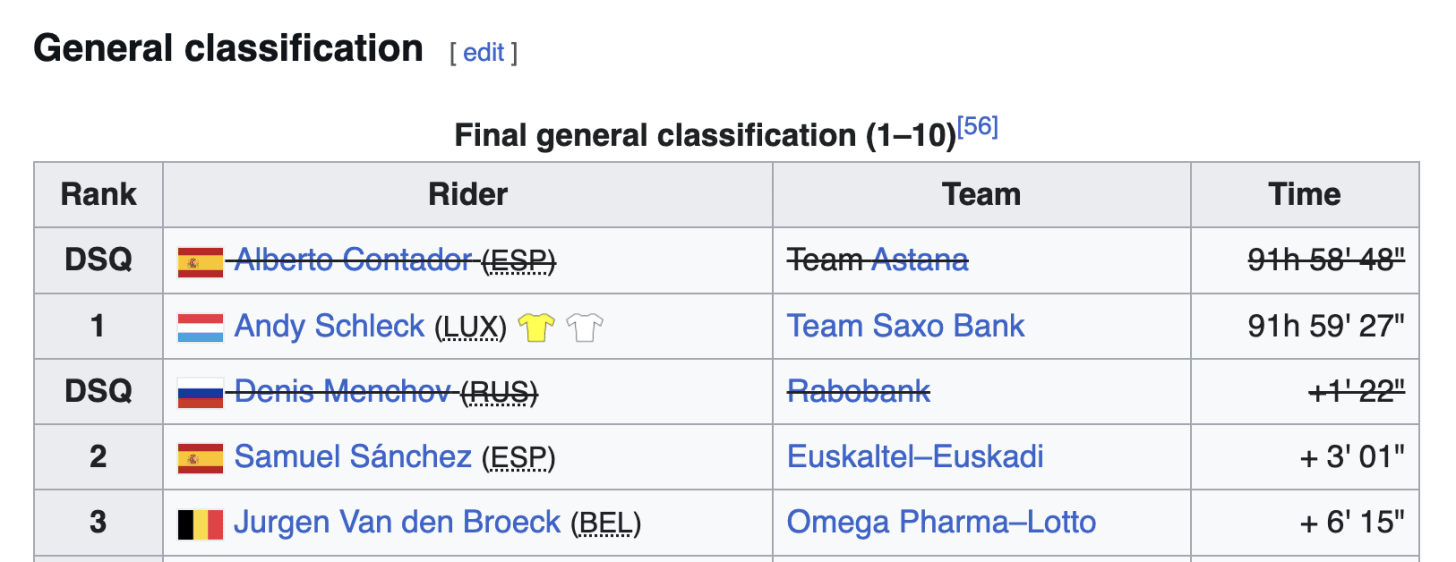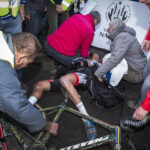
It wasn’t unthinkable; in fact, probably every cycling fan has thought about what would need to happen for Tadej Pogaçar not to win this Tour de France: For a moment Wednesday, we thought we might be seeing an opening to a very different kind of Tour.
With just four kilometers left in the stage, a rival rider swept in front of the Pogaçar, already the Tour’s presumptive victor, who went sliding across the pavement, stopping only when his bony shoulder collided with a high curb. What followed was as close to frantic as the typically chill Slovenian gets; as Vingegaard and other adversaries pedaled towards the finish, Pogaçar quickly shook off any ill effects of the crash, but then grabbed at his chain, spun his pedals and generally, uncharacteristically freaked out. But for the efforts and acumen of the day’s hero, a Shimano repair guy who stopped and parked his motorcycle, sprinted to Pogaçar and for about five seconds became his own brand of G.O.A.T., Tadej might have spent a precious minute there, perhaps even more. It’s all quite worth watching.
But “Pogi” needn’t have exerted even those few moments of freneticism: Far from seizing the opportunity, Vingegaard, his teammates and Maillot Jaune-clad Ben Healy elected to slow their collective roll; with the aid of some fast-reacting teammates, Pogaçar was back in the mix within a few minutes.
This got me thinking: Is cycling the only sport in which — even at the highest levels, vying for the loftiest title — competitors will ease their effort when a mishap befalls a rival? And if so…why?
Consider F1, another sport that sees its share of incidents: If Lewis Hamilton spins out — is taken out by another driver — but manages to recover, does Piastri wait for him? It seems absurd even to consider the possibility. (You know Verstappen wouldn’t.)
Runners rarely fall; if one steeplechaser clips another, who falls into the water, I can’t imagine anyone would so much as manage their pace for a few strides. In other arenas an athlete might sportingly help a rival off the turf or the hardwood — and may then inflict their efforts at their bruised knee or ankle.
Not that cyclists always wait for one another, but post-crash grace seems to be the order among the peloton’s elite riders. After all, this isn’t the first time that Vingegaard waited for Pogaçar — we saw this happen in 2022 — and back in 2003, Tyler Hamilton called for “Tranquilo” after Lance Armstrong’s handlebar was snagged by a spectator’s musette bag, sending him to the pavement, and his victory-in-Paris chances temporarily into question. (My informed assumption is that Hamilton would like to have that decision back.)

So if cycling is the only sport where we see this abatement in effort after an opponent suffers some ill fate…why? Are cyclists more gentlepersonly, more honorable?
My sense is that the answer lies in the sheer quantity of crashes. Every avid cyclist puts skin to pavement at some point; most racers hit the deck multiple times in a career (or in a single stage race, if you’re Primoz Roglic!). Not that learning that your rival has crashed triggers sympathy exactly; more that with so many examples, the sport has unspokenly evolved a playbook around crashing: If the fallen rider wasn’t at fault — didn’t himself sweep in front of another wheel, for example; if a result really is on the line, as in late in a race; and yes, if the crashed rider is wearing the Yellow Jersey, or is indeed the Greatest Cyclist Of All Time, or at least a potential winner, then…you wait.
Usually. When Andy Schleck dropped his chain in a crucial stage in 2010, Alberto Contador stomped on the pedals and rode away, over the Port de Balès and into the Yellow Jersey. The Spaniard played dumb and played it cool after the stage, reminding an interviewer that he’d waited for Schleck after a nasty tumble earlier in the Tour. But it was another racer, Fabian Cancellara, who’d promulgated that soft-pedaling, and Contador’s reputation took a months-long hit after his aggression.

The post The Waiting Game appeared first on PezCycling News.




